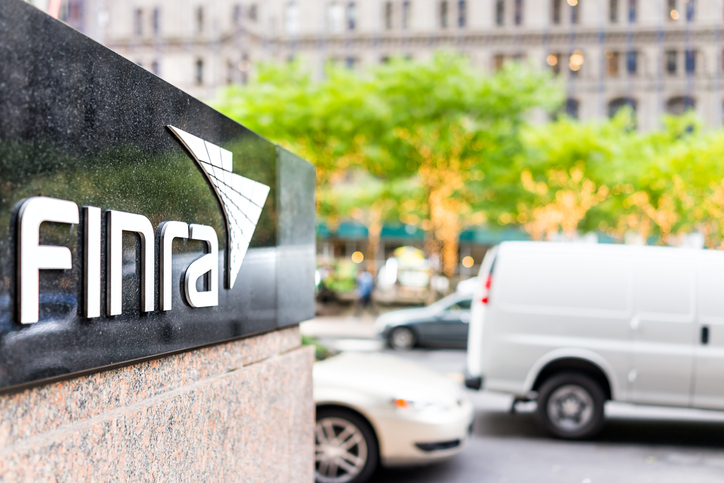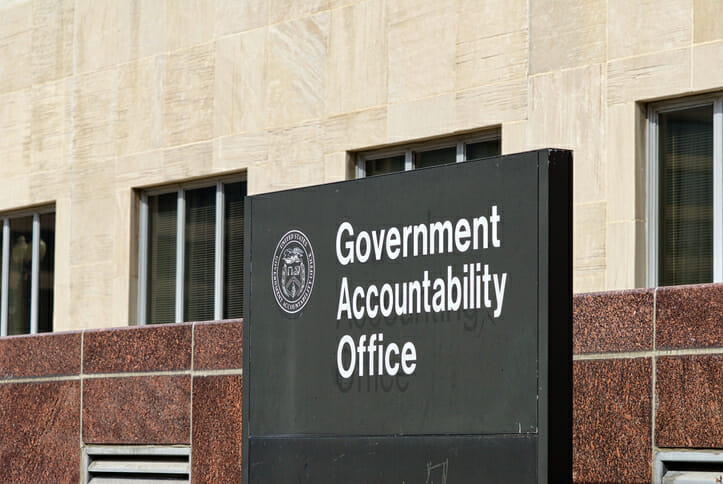The Government Accountability Office (GAO) has called on the Securities and Exchange Commission (SEC) to make oversight changes to the Financial Industry Regulatory Authority (FINRA), which writes and enforces rules that govern the ethics of registered brokers and firms. The GAO wants the SEC to develop FINRA and Securities Industry Oversight (FSIO) performance measures to protect investors and maintain efficient markets. Let’s take a look at how these FINRA oversight changes can affect consumers and financial advisors.
If you’re looking for a qualified financial advisor, SmartAsset’s free tool can match you with up to three financial advisors who serve your area.
Why Does GAO Want to Make Changes to FINRA?
A report from the GAO says that the SEC reviewed FINRA at least 69 times and found that examinations and inspections lack outcome-oriented data and useful information for decision-making.
Consequently, the congressional watchdog calls on the SEC to make changes that tighten up how deficiencies and corrective FINRA actions are tracked. It also wants to establish documented policies and procedures to share quality findings with internal stakeholders and FINRA.
The SEC has generally agreed to three GAO recommendations, which would:
- Develop FINRA performance measures that reflect leading practices and assure that the SEC is doing due diligence to protect investors and maintain efficient markets.
- Implement FSIO policies and procedures for tracking shortcomings associated with FINRA’s corrective actions.
- Implement FSIO procedures so that they can identify and communicate the importance of its inspections and examination findings.
What Is FINRA?

FINRA, created by the SEC in 2007, is a private, nongovernment, self-regulatory organization that writes and enforces rules that govern registered brokers, broker-dealer firms and public investors in the U.S.
After the National Association of Securities Dealers (NASD), which oversaw all broker-dealers and registered representatives in U.S. from 1939 to 2007, was consolidated, FINRA was built with the purpose of regulating the securities industry to maintain market integrity and help protect investors against fraud and bad practices.
FINRA mandates how investors and securities participants can behave and interact. If any participants fail to comply, the regulatory authority has the ability to punish those involved with suspensions or ban them from the securities industry.
In addition to writing and enforcing rules that govern the ethical behavior of registered brokers and firms, FINRA also manages the qualifying exams for securities professionals. If any company or individual wants to sell securities in the U.S., they need to register with the regulatory authority and pass those exams to get a license.
As of 2020 in the U.S., the organization oversees 617,549 FINRA-registered representatives.
How Can Consumers Vet Financial Advisors?
FINRA provides resources for consumers looking to vet financial professionals. One such resource is BrokerCheck, which allows investors to search and review securities professionals by their name, location and Central Registration Depository.
The BrokerCheck tool is a good way to ensure the person or firm with which you are talking is registered by law to sell securities or offer investment advice.
According to BrockerCheck, it will give you, “a snapshot of a broker’s employment history, regulatory actions, investment-related licensing information, arbitrations and complaints.” BrokerCheck also gives users the ability to view brokers who are barred by FINRA.
Other common ways to vet a financial advisor include these:
Meet multiple advisors before you hire one. Meet a few advisors before settling on one. Even if an advisor is located closer to you, the advisor may not be the best choice. Take a few interviews before making a decision.
Know whether the advisor is a fiduciary. Fiduciary financial advisors are bound to act in a client’s best interest. They need to avoid conflicts of interest and let their clients know of any conflicts as well.
Ask about credentials. Ask advisors about their licenses and tests. There are several licenses that give advisors the ability to sell securities and perform other services, among them are Series 7, Series 65 and Series 66. Some advisors demonstrate professional and ethical standards by becoming certified financial planners.
GAO has a responsibility to ensure the SEC is overseeing FINRA properly and that the rules and procedures on all levels are met. Quality standards at all times mean that investors know the marketplace is secured with honesty and fairness and protected from fraud and noncompliance. As an individual, you enhance your security by personally vetting financial advisors with the best resources to help secure your financial goals.
Tips to Find a Financial Advisor
- Finding a qualified financial advisor doesn’t have to be hard. SmartAsset’s free tool matches you with up to three financial advisors who serve your area, and you can interview your advisor matches at no cost to decide which one is right for you. If you’re ready to find an advisor who can help you achieve your financial goals, get started now.
- If you don’t have a lot to invest, you might also want to consider a robo-advisor. Robo-advisors, which are entirely online, offer lower fees and account minimums than traditional financial advisors.
Photo credit: ©iStock/John M. Chase, ©iStock/krblokhin, ©iStock/skynesher

